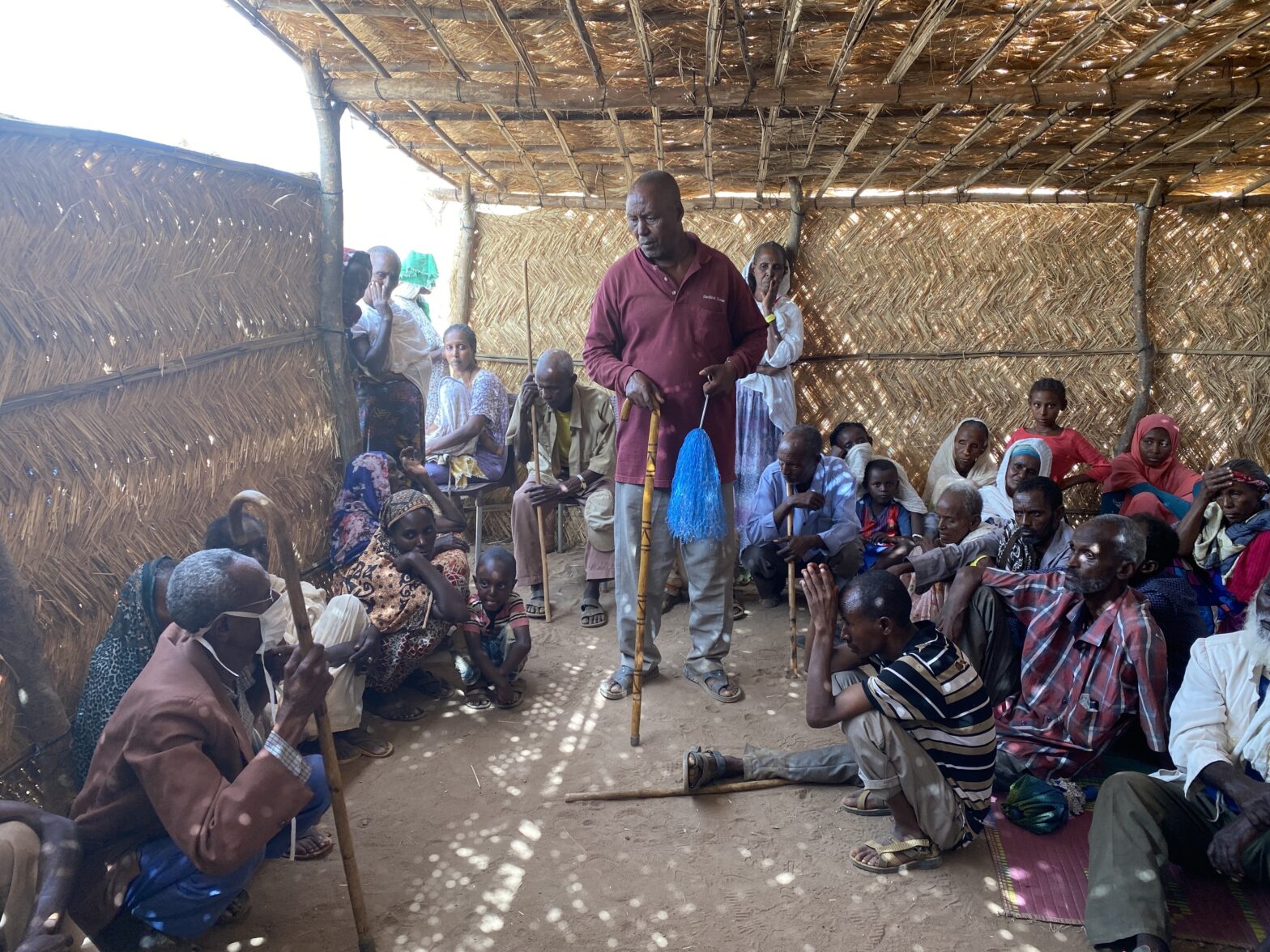
In communities affected by conflict, people with disabilities are often persecuted, forced to flee their homes and deprived of basic human rights – and typically find it even harder than others to access support. For women, it is even harder again.
Our Protection and Inclusion Advisor Sherin AlShaikhAhmed sheds light on new research by Islamic Relief around the issue and the ways in which we can make sure humanitarian action is inclusive of persons with disabilities.
Islamic Relief worked with the International Disability Alliance (IDA) to research the experiences of people with disabilities living in refugee camps in South Sudan, having escaped conflict in Tigray, Ethiopia.
The report shows, “clear evidence of the persistent exclusion of persons with disabilities during any humanitarian response, which further threaten the situation of persons with disabilities and violates their basic rights”.
Many refugees with disabilities living in the camp struggle to access food, healthcare and education, as well as clean drinking water and sanitation facilities. They were also found to often be excluded in decision-making processes or in appointing camp leadership and management committees.
Those who fled alone had lost the support of their caregivers and therefore faced protection risks and exploitation.
Women and children face further risks
The report focuses on the experience of women and children with disabilities, and the increased risks they face. Women and girls with intellectual and psychosocial disabilities were found to be more vulnerable to sexual violence, due to a lack of information around gender-based violence or a lack of awareness around personal safety and protective measures.
Certain zones of the camp were reported as unsafe by women and girls with disabilities due to alcohol abuse among men. Fatima, a young woman with physical disabilities, said she felt uncomfortable moving around the camp at night, because it is poorly lit.
What’s more, women and girls are often caregivers for persons with disabilities, and many found that they faced harassment and exploitation when trying to find support.
An interview with the parents of a woman with disabilities in Um Rakuba camp was particularly distressing. In the absence of any other support networks, they are struggling to look after their daughter. It’s a struggle for them to collect food, fetch water and deal with inaccessible camp facilities.
They also spoke about deep feelings of isolation and helplessness in not being able to support their daughter to participate in the camp activities.
An inclusive humanitarian response is key
Islamic Relief realises the importance of inclusive humanitarian programming and honours its commitments to disability inclusion, in order to ensure that people with disabilities have equal rights and opportunities to access humanitarian assistance, and participate equally.
Islamic Relief calls upon humanitarian organisations to place people with disabilities at the forefront of their humanitarian action. This should be based on internationally adopted norms and standards including the United Nations Convention on the Rights of Persons with Disabilities and IASC Guidelines on Inclusion of Persons with Disabilities in Humanitarian Action.




